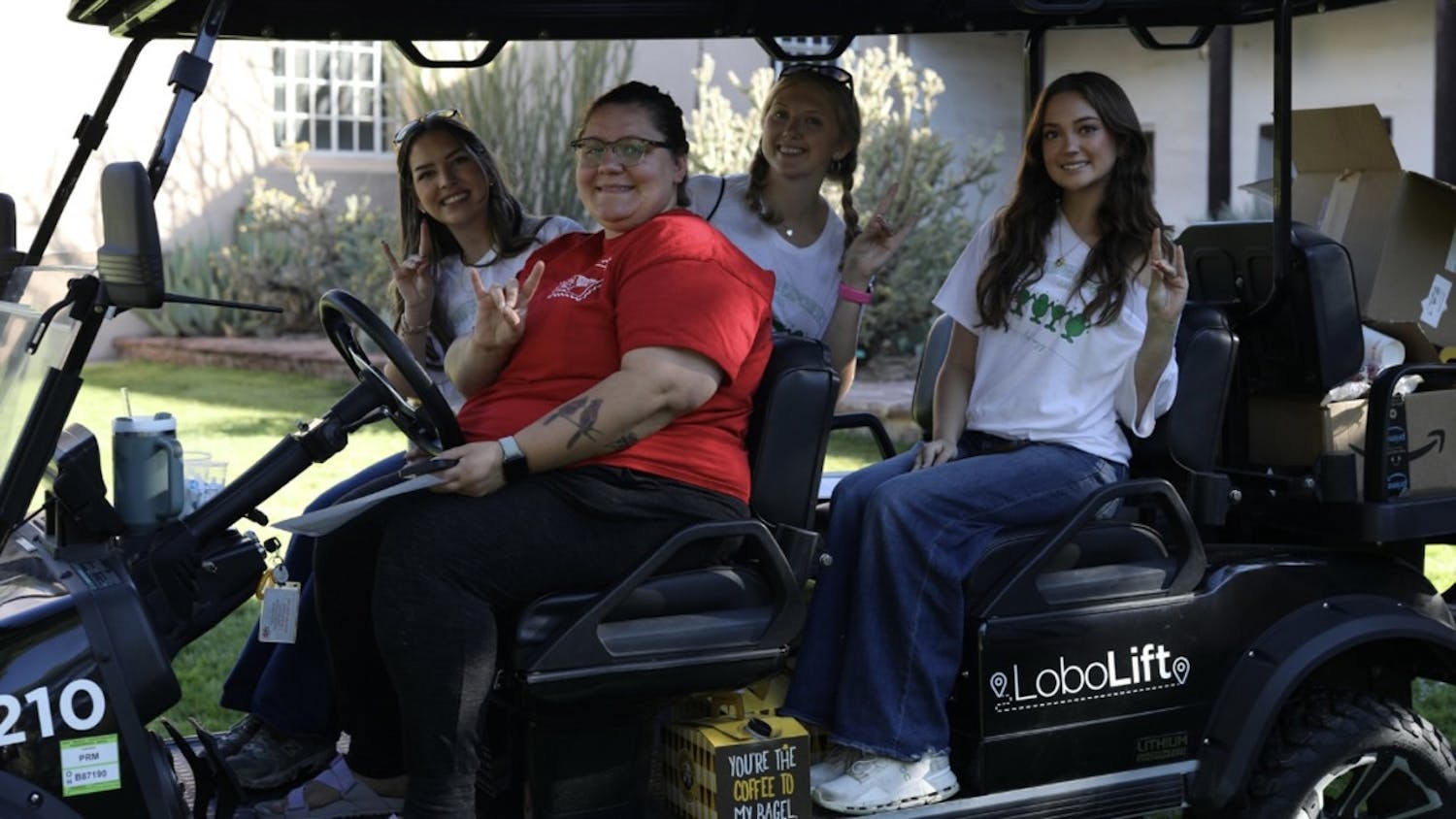UNM is breaking ground this semester with two new courses in public health for students.
Dr. Robert Scott Olds, professor of family and community medicine at UNM's School of Medicine, said the courses being offered are Introduction to Population Health and Global Health Challenges and Responses.
Both elective courses are introductory and the first of their kind at the University. Each will be offered again in the spring as well, he said.
“I think that everyone can potentially benefit from these courses,” Olds said. “If you’re interested in trying to help make a difference in the health in your communities, this is a spot for you to come find a home.”
Introduction to Population Health is being taught by Public Health Associate Professor Andrew Rowland, who has a background in epidemiology, which is “the study of distribution and determinants of disease and health,” Olds said.
Global Health Challenges and Responses introduces students to the continuing efforts of the medical community to safeguard the wellbeing of whole populations. It also teaches the importance of community prevention to that end, he said.
“All of us will benefit from being on any place in that continuum at some point in our lives,” he said. “We all get sick, we all need care, there are things we can do.”
Students will look at and study local, county and state data, Olds said, and comprehend the very real problems that need to be addressed in New Mexico, including “tremendous” opiate drug use problems, high rates of teen pregnancy, diabetes and excessive alcohol use.
“That continuum I was talking about, has a role at every stop along the way in terms of responding to some of these problems,” he said.
Olds said there are also public health programs that can be addressed at the community level. These programs encourage people to eat healthy, exercise more frequently and to avoid drinking and driving, etc.
“They’re giving students an opportunity to learn how two systems, the medical care system and the public health system, work together to promote health, prevent disease and reduce disability and injury.”
Global Health Challenges and Responses is taught by Victor Barbiero, who has a doctorate in public health and worked for the U.S. Agency for International Development, which helps administer foreign civilian aid, across the globe.
Get content from The Daily Lobo delivered to your inbox
The World Health Organization reported that in 2014, almost half the countries surveyed had access to less than half the essential medicines they needed for basic health care in the public sector.
“It has more of an international flavor to it,” Olds said. “One of the central themes through all our curriculum is this idea of social determinants; education, income, poverty, access to healthcare, access to grocery stores.”
According to the Centers for Medicare and Medicaid Services, $492.3 billion was spent on Medicaid alone in 2014.
"Much of that percentage is allocated towards trying to treat people, which is a necessity, but we can invest money in keeping people well, too. Keep them out of the system and focus on prevention. There are economic benefits, and quality of life benefits that come from promoting health," he said.
The relevance is essential to how communities, families and individuals succeed and function.
“Without health, it's hard to get anything else done,” Olds said.
According to the World Health Organization’s website, there have been numerous “notable public health campaigns” that have made an impact on a global scale, including vaccination, promoting motor vehicle safety and educating the public on the dangers of tobacco.
The Institute of Medicine recommends that every student study this subject matter in the classroom because it's beneficial, Olds said. This includes global health experience along with an introduction to public health and population health, but it is applicable at many levels and areas of study.
“There’s a piece and a place for every potential science to be involved,” Olds said. “Because those decisions that are made about advancing the health of the community are not made just by doctors, they’re not made just by public health professionals, they’re made by political leaders, business leaders and community members. So the more informed people are, the better.”
Olds said he and his colleagues at Family and Community Medicine hope to make the courses UNM-core eligible. They are also interested in developing a Bachelor of Science degree in population health.
The degree is in the process of being developed now, he said, to be submitted to the curriculum committees this October. It would then go through the University review process. If approved, it would be the first degree of its kind in the country.
“We think we’re being innovative and fun and we think that’s what universities ought to do,” Olds said. “Because whether it’s from the bench scientist to the social scientist at the other end of the continuum, we’re all trying to work together to try to make our communities better places for people to live, work, thrive and play. For children to grow up and for elderly to go into the sunset of their lives as well.”
Matthew Reisen is a staff reporter for the Daily Lobo. He can be reached at news@dailylobo.com or on Twitter @DailyLobo.






